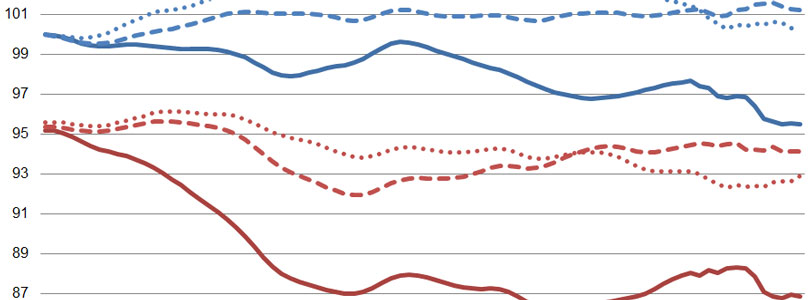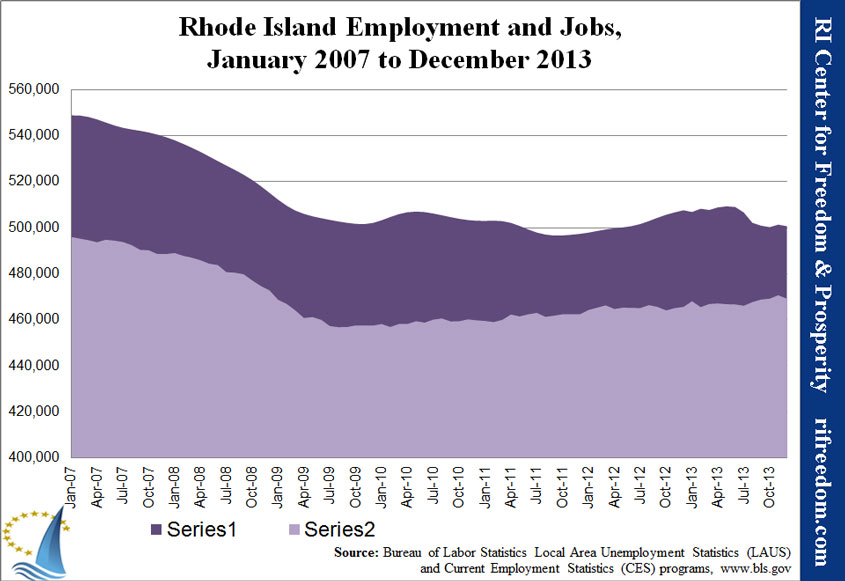December Employment: Rhode Island in Contrast
I’ve added a new chart to my monthly RIFreedom employment post with the major takeaway that, not only is Rhode Island’s unemployment rate the worst in the country, but it would actually be 13.2% if so many people hadn’t given up looking for work over the past seven years.
Putting Rhode Island in the context of its neighboring states is enough to make a Rhode Islander long to be able to make the boast of having a similarly stagnant employment picture, but we can’t even claim stagnation:
When it comes to states’ distance from their peak employment, Michigan continues to prevent Rhode Island from claiming that worst-in-the-nation title. The gap remains slender, however. This is in contrast with the state of affairs when I ran this chart in October 2012. Back then, Rhode Island had a buffer of two percentage points, from Michigan, instead of its current 0.4-percentage-point distance.
Also interesting in the comparison with October 2012 is that the state that was then third farthest from its peak was Indiana. That state became a “right to work” state in 2012, and it has since climbed two percentage points toward its peak, making it twelfth farthest. Michigan took the leap later in the year, so it will be interesting to see whether it therefore leaves Rhode Island in the dust, with the Ocean State’s refusal to undertake any significant reforms that could boost employment for residents.
Not surprisingly, then, Rhode Island remains below its employment level at the end of the national jobs crisis and is an the verge of re-entering the bottom three, by that measure.
Finally, contrary to recent trends, December saw a drop not only in employment, but also in RI-based jobs. As previously explained, the most significant reason for the difference between employment and jobs numbers is that employment (the darker area) includes business owners and independent contractors.
In other words, we’ve been seeing job growth at a little lower than the rate of inflation, but the innovators who drive the economy — and drive it in new directions — have been on the decline.






